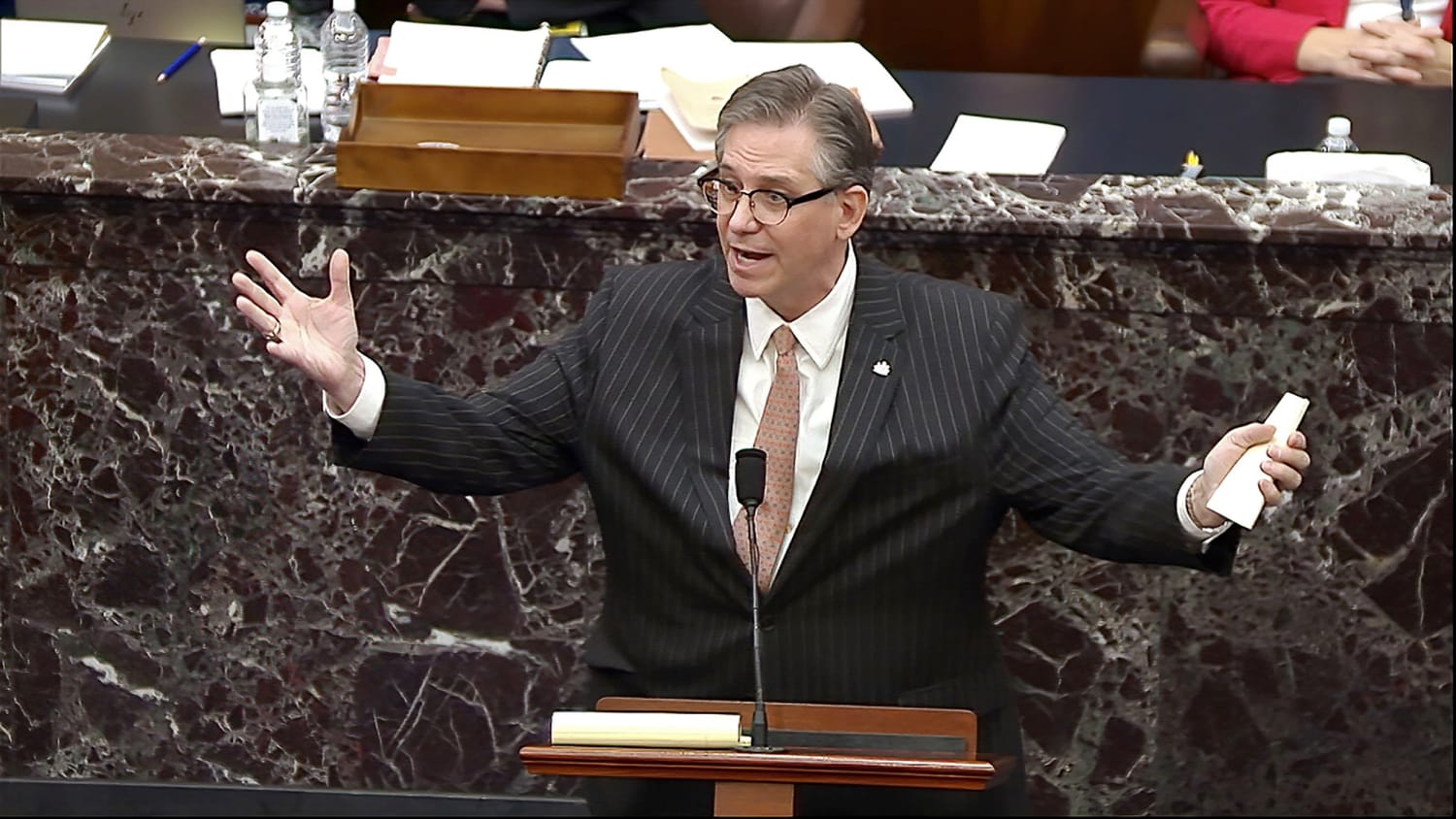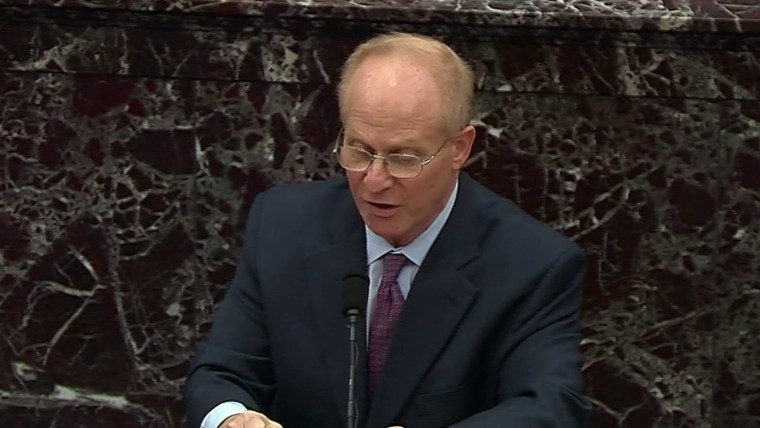Former President Donald Trump’s impeachment legal strategy defies the conventional wisdom that money can buy the best defense. From the pre- and post-election litigation to this week’s Senate impeachment trial, Trump’s legal team has employed strategies that fall somewhere between sanction-worthy and inept.
Trump lawyers Bruce Castor and David Schoen took Congress — and everyone watching at home — on a wild, meandering ride.
The first day of the trial centered on whether it’s even constitutional to impeach a former federal official. Spoiler alert — it is. Ultimately, a majority of the senators agreed. But not before Trump lawyers Bruce Castor and David Schoen took Congress — and everyone watching at home — on a wild, meandering ride.
It’s no surprise that Trump was reportedly frustrated by his attorneys’ efforts. Anyone watching would have been — and by the looks of Twitter, a lot of lawyers were watching.
In the words of Sen. Bill Cassidy, R-La., Trump’s defense team did a “terrible job.”
Castor, who argued first on behalf of Trump, stated flat-out that the team changed its strategy at the very last minute as a result of the strength of the House impeachment managers’ case. This is a puzzling revelation, even for a legal team that was just assembled a week ago after the mass exodus of Trump’s first team. Puzzling because the House managers’ presentation, while forceful and emotionally persuasive, included no surprises. All of the arguments made by Rep. Jamie Raskin, D-Md., and company are laid out clearly in their briefs.
Castor continued speaking, but while we heard many words, we heard few arguments. Again, the only issue before the Senate on Tuesday was whether the impeachment trial was constitutional. Trump’s legal team provided no real path to conclude that a trial wasn’t constitutional. As Cassidy put it, “They did everything they could but to talk about the question at hand.” Cassidy wasn’t alone. Sen. Lisa Murkowski, R-Alaska, said she was “stunned” and, frankly, confused. Sen. John Cornyn, R-Texas, echoed his colleagues’ comments, saying Cantor “just rambled on and on and on and didn’t really address the constitutional argument.”
To be fair, oral arguments can be tricky, and this trial is far from over. Maybe Castor was just nervous? It’s possible but highly improbable, given what we’ve already seen in writing from this team. (Yes, this includes the filings that misspell “United States.”)
Those senators searching for strong legal or political arguments will find none in the written filings. For example, Rep. Joe Neguse, D-Colo., one of the House’s nine impeachment managers, pointed out that the Trump team’s brief completely misrepresents the precedent set by former Secretary of War William Belknap. Belknap, who resigned just before his impeachment trial in the late 1800s, provides strong evidence for why Trump can be impeached, not the other way around.
In another example, Trump’s legal team repeatedly cited and distorted Michigan State University law professor Brian Kalt’s writings. Kalt described the Trump team’s reliance on his writing as ranging from “sloppy to disingenuous.”
This isn’t the first time Trump’s legal team has engaged in less-than-stellar legal arguments. We need only go back a few weeks, to the very recent history of his post-impeachment litigation. In the weeks after the election, Trump’s legal team peddled lies, falsehoods and conspiracy theories. Its legal “filings” were routinely and roundly dismissed. Trump attorney Lin Wood may face disbarment. An ethics complaint has been filed against former Trump legal adviser Rudy Giuliani. The governor of Michigan has sought the disbarment of another Trump legal team member, Sidney Powell.
People ask me whether I will teach any of the post-election litigation in an election law or political law class. And the answer is no. Trump’s post-election filings didn’t raise any genuine issues of election law. Instead, we should teach about the post-election period in professional responsibility classes. Wood, Giuliani and Powell have provided a master class in how not to conduct yourself as a member of the bar.
Similarly, the Trump impeachment team’s actions should be taught not in a constitutional law class but in a trial advocacy class. Here again, they provide the perfect picture of what not to do. First, don’t lie and misrepresent in your filings. Second, don’t make silly errors that do nothing but undermine your credibility. Third, address the actual legal question at issue. No more, no less.
The reality, of course, is that Trump’s impeachment team, in all of its clumsy and possibly inane glory, will likely win this case. Unlike the post-election litigation, which was settled in courtrooms, the outcome of the impeachment case will be determined in a political forum. The senators, not judges or jurors in the conventional sense, will decide whether Trump engaged in impeachable conduct when he sent an angry mob to storm the Capitol. While there is so much uncertainty in this world, the outcome of this case is all but predetermined.
And so the truly depressing part of this story isn’t the bad lawyering — it’s that not even a nakedly incompetent case could sway Republicans’ minds.
Class dismissed.
Source: | This article originally belongs to Nbcnews.com












